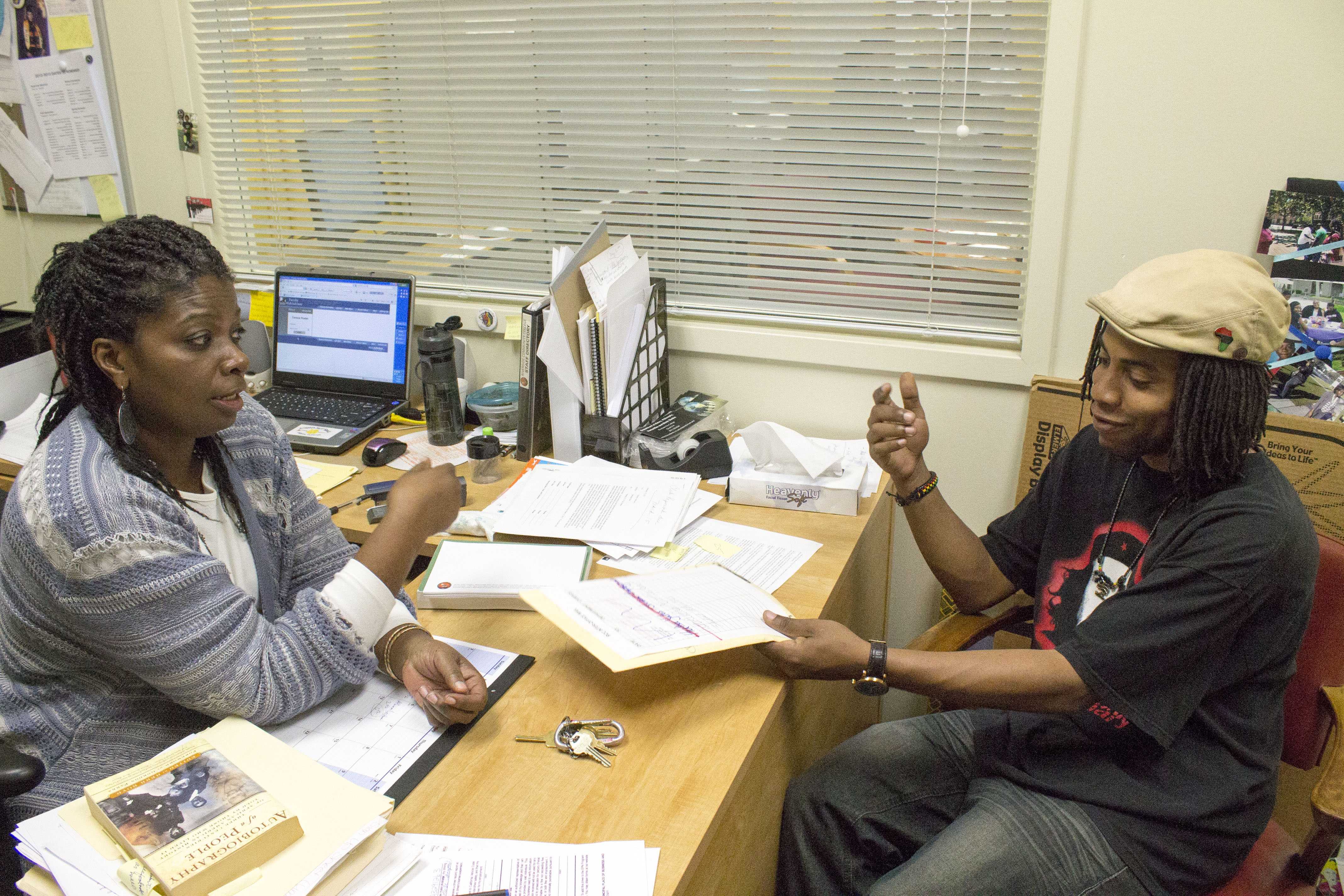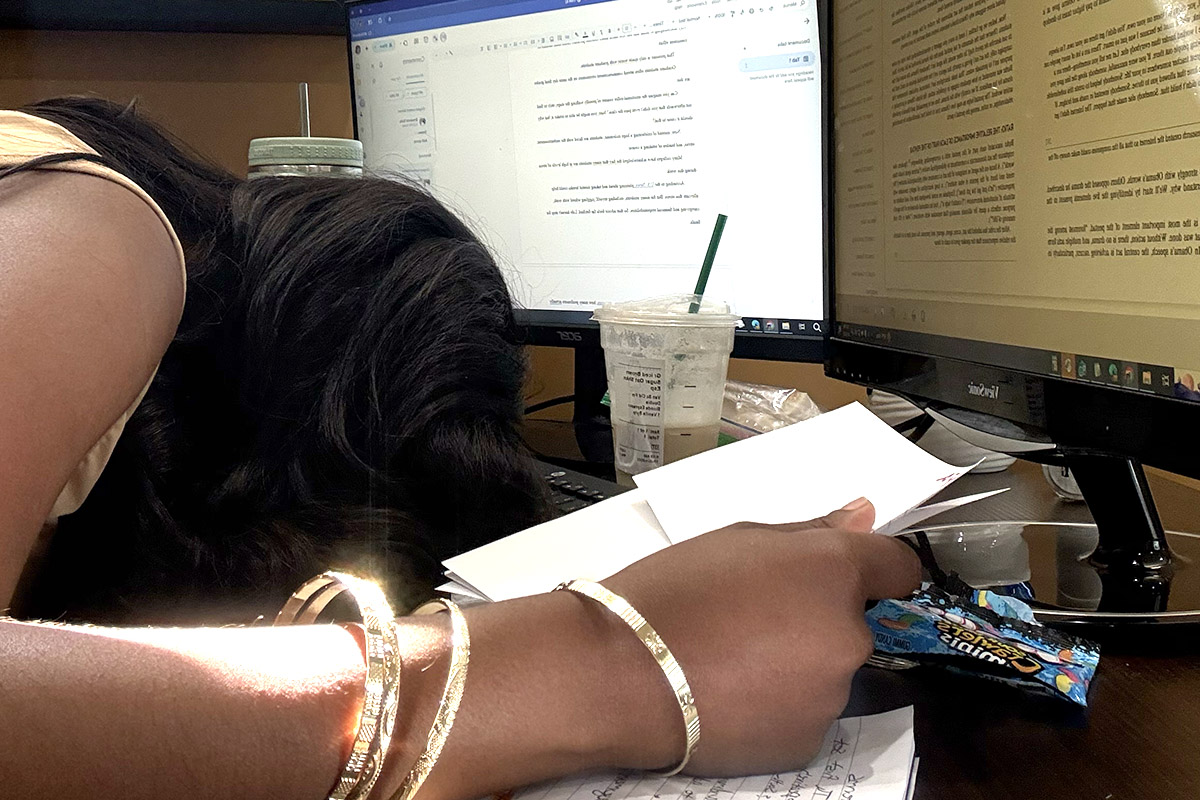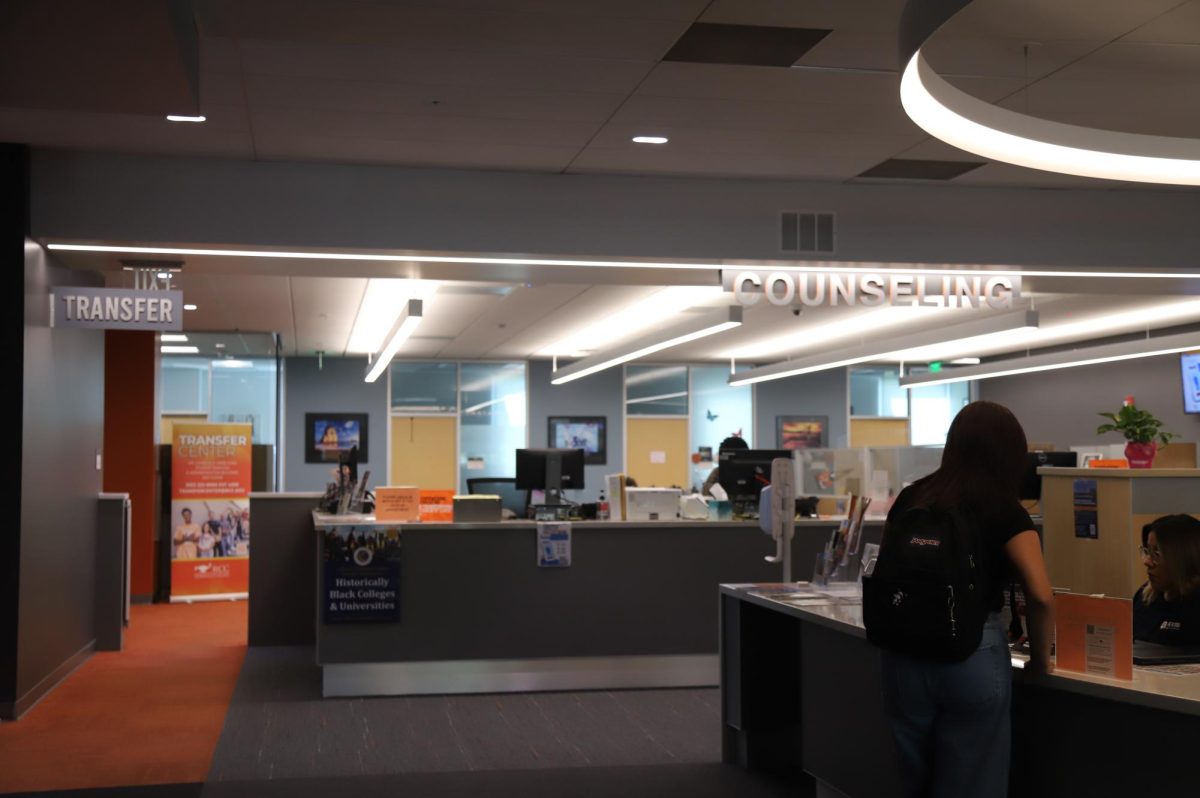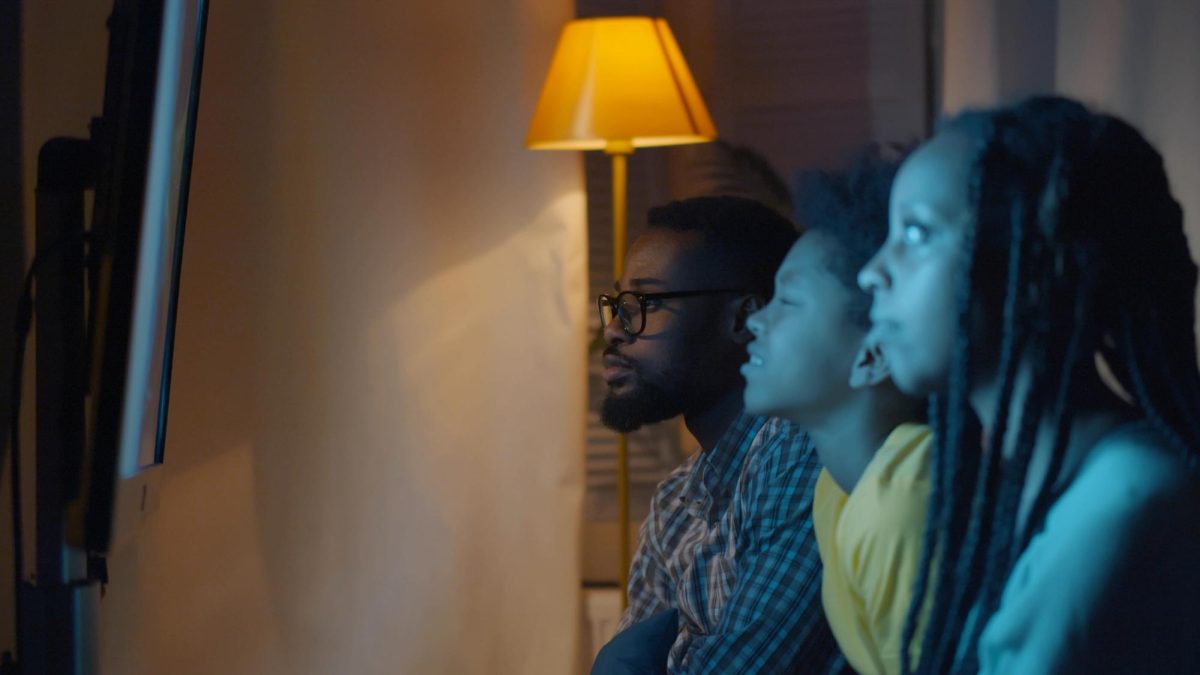By Devon Everett | Asst. Opinions Editor
In this day and age, with all the negativity in the media, it seems as though African Americans aren’t willing to help each other out anymore.
However, this is not the case when it comes to the Ujima Project here at Riverside City College.
The Ujima project, which has been around since 1998, has been mentoring, educating, and inspiring students of all races.
In its own way, the Ujima project is like a guiding force, driving students to succeed in all they do.
Sure, the majority of the students there are of African American descent, but Ujima retains an “open door policy” and allows students of all races to walk through their doors.
The “HOME room,” is located in the Administration building in room 126, which is across from Disabled student services.
“HOME” stands for “Hope, Opportunity, Mentoring, and Empowerment.
The main Idea behind the Ujima project is the definition of Ujima itself. Ujima is Swahili for “collective work and responsibility.”
This closely relates to the saying, “It takes a village to raise a child.”
The environment is actually quite enjoyable inside the HOME room.
When I toured the HOME room to research the Ujima project, I felt welcome, almost like I was at home. I would assume that this is the environment they were trying to promote.
I had the opportunity to speak with four intelligent, well-mannered people when I was there, and when I left I felt inspired to do bigger and better things.
Dr. Oliver Thompson, professor of administration of justice classes here at Riverside City College, has been with Ujima since 1998, when it was solely “BSC”.
He is a rather respectable gentleman with a strong, moral standing.
In my opinion, if anyone were to be entrusted to instill moral values in young people today, I would want it to be him.
President Obama would be my second choice.
“We’re trying to let a young generation know that they have to go above and beyond what is expected of them with the demographics of California the way they are today.” Dr. Thompson said.
“Only so many can be in the arts. You can only have so many rappers and actors. Everyone else will have to get jobs and make use of their educational opportunities.”
What he’s saying here is that not everyone is going to be rich and famous.
The African American community especially has people aspiring to be celebrities, and some of those people follow the wrong path and end up in prison.
This happens among all races, but it is common among blacks in California.

The Ujima project is trying to take a stand against this.
This makes me respect the Ujima project even more.
“Since 1968 and all the work that Martin Luther King Jr. did, progress has been wasted.” Thompson continued. “Hard work made me successful. You have to put in more than your 40 hours a week.”
Again, he believes we should go above and beyond what is expected.
We should do more than what the media expects of Black Americans.
Then he continued about race and racial discrimination. “No one cares about race. Can you produce?”
I would assume here that as long as you can get a job done, race is irrelevant.
I also spoke with Dr. Kristi Woods, the Ujima coordinator. Woods professes Ethnic studies, Philosophy, African American; U.S. and World Histories as a full time faculty member here at RCC.
“The Ujima project is a student success program based on mentoring. We have been in the current HOME room since 2003. What we want to do is help the whole person.”
And this shows with the progress the Ujima project has made over the past several years.
Then I spoke with Florita Jones, Ujima’s student adviser. We had a very engaging conversation that basically reflected her views not only of Ujima, but of life as well.
“We instill discipline, study habits, and respect in our students,” she said. “We’re here to give them second chances.”
“We’re seeing the changes in students,” she said. “They’re beginning to be motivated and strong to bring ‘HOPE’.”
I enjoyed our conversation, and then asked her what the Ujima project actually did.
“We guide the students in the right direction,” she replied. “ We also build self-esteem, self- image. We even provide counseling, college supplies, and guide them to the right facilities.”
Note that she never once said “black students.”
I then thanked her and spoke to Charles Wagner, Ujima’s club president for the past two years. He was more direct than the others, basically giving us the hard information we needed.
Wagner is in all honors classes and is RCC’s homecoming king. He is also a supplementary instructor for English 60.
When we asked him what Ujima is, he basically told us that it is a program geared toward African American and ethnic diversity.
“This program puts high-risk African Americans in the right place,” he said. “It is complete with resources and guidance. We have a lot of disabled students as well.”
Admittedly, the conversation between me and Wagner was relatively brief.
He did, however, say that Thursday was “college hour meetings,” in which they have debates among other things and plan positive things for the community, such as field trips to feed the homeless.
When I finished these interviews, I felt like a better man, like I had been empowered.
All of this makes me think of how little Black History Month was acknowledged this year.
There weren’t really any cultural festivals or anything that was brought to light, and some black people didn’t even recognize that it was black history month.
Then again, who said that Black history is only for African Americans?
Yolonda Banks Reed, author and writer of, “The Guardian Angel Who Had a Loud Voice,” wrote an agreement called “You say, No Problem.”
In it, she stated President Ford’s recognition of black history month.
“After the week being created by Carter G. Woodson, in 1976 the federal government, President Ford speaks in regards, urging black Americans to seize the opportunity to honor the too-often neglected accomplishments of black Americans in every area of endeavor through our history,” recognizing black history month.
That being said, other cultures need to see their reflection in our history of who they are.
I think that the Ujima project is one program that can show this.






